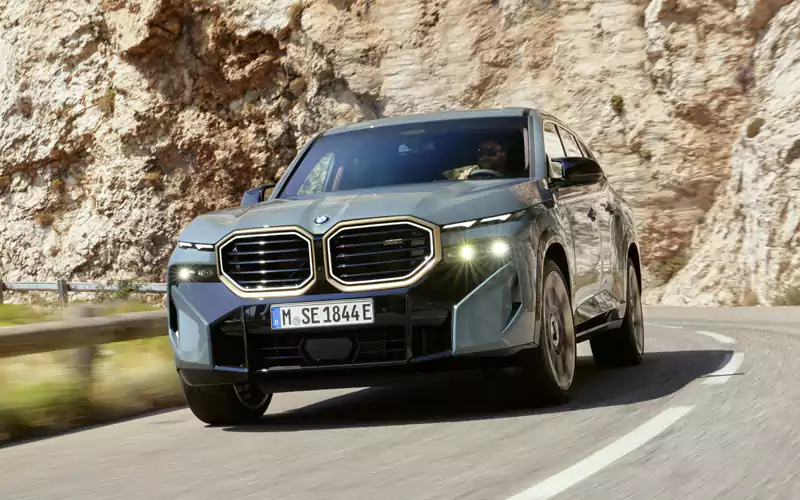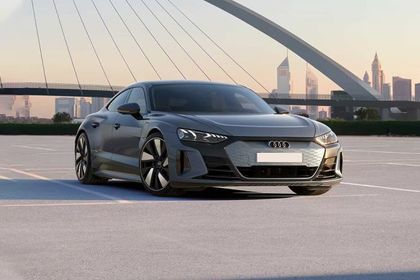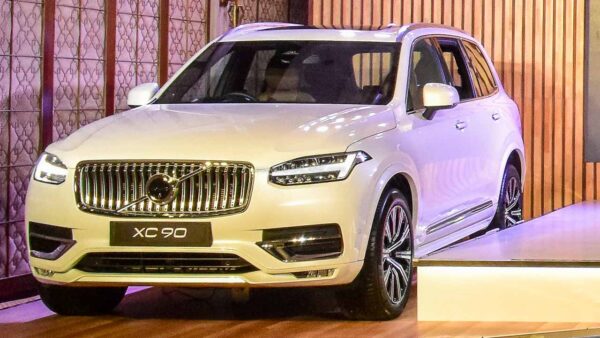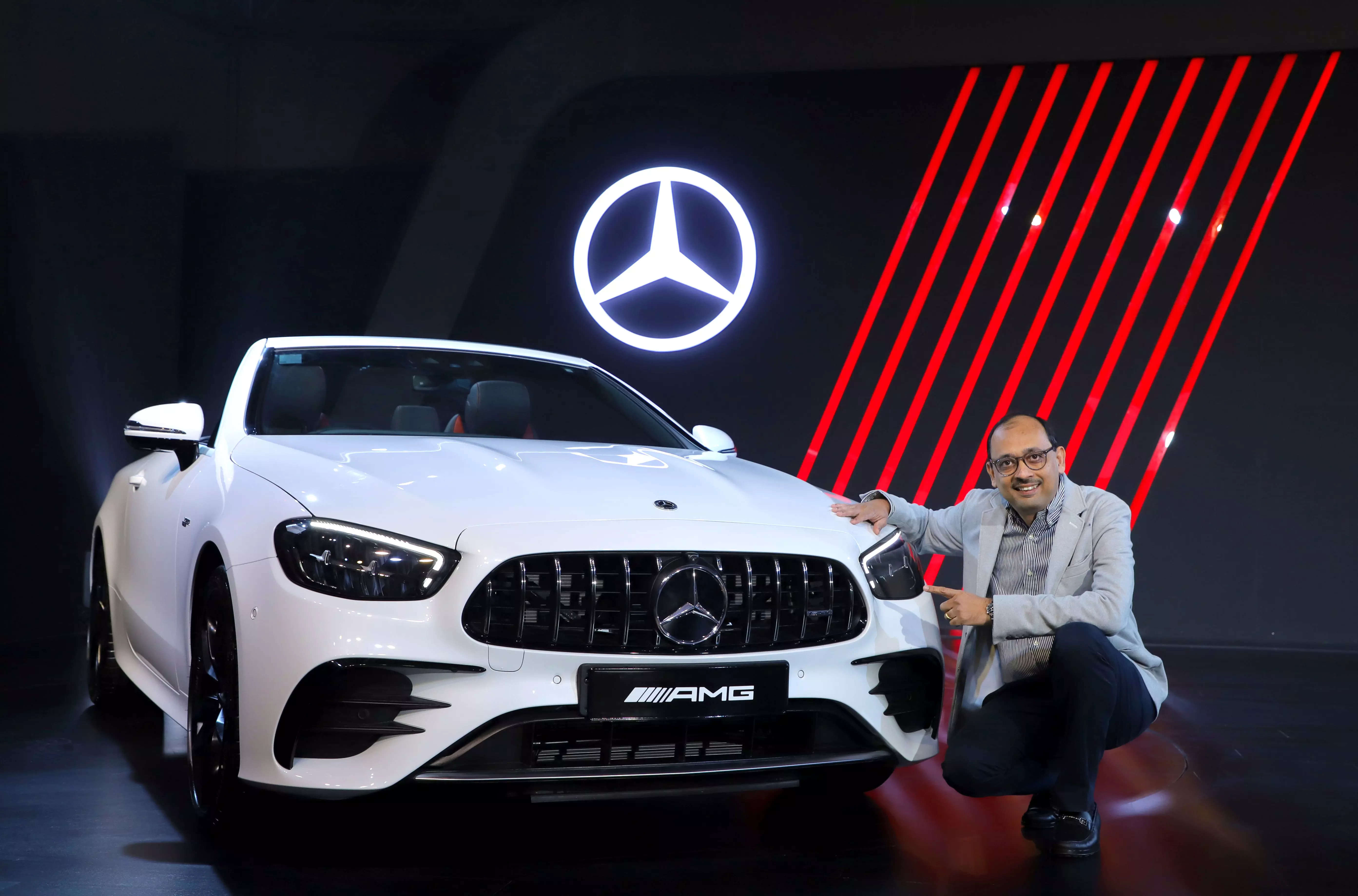Porsche To Explore Local Production Of Cayenne SUV In India Amid Demand Surge, The Luxury Car Market In India Anticipates A Record Year In 2023
Luxury carmaker Porsche is eyeing the Indian market with a strategic move to potentially assemble its iconic Cayenne SUV locally. Fueled by an unprecedented surge in demand, Porsche's consideration to shift part of its production to India aligns with a broader trend of luxury car manufacturers tapping into the country's rapidly expanding automobile sector.

Porsche is considering the prospect of manufacturing its renowned SUV model, the Cayenne, in India due to an “unprecedented surge” in demand, according to senior industry insiders familiar with the German luxury carmaker’s intentions.
During their visit to Delhi, Porsche AG board members Detlev von Platen, responsible for sales and marketing, and Matthias Becker, vice president of the overseas and emerging markets region, are set to engage with senior government officials. Their schedule includes meetings with Invest India and Niti Aayog on Tuesday.
In the Indian market, Porsche currently markets a selection of imported vehicles, such as the Macan, Cayenne, and Panamera, with prices ranging from Rs 88 lakh to Rs 1.84 crore ex-showroom.

A senior executive familiar with the matter shared that Porsche is exploring the possibility of assembling the Cayenne SUV locally in order to access tax benefits and extend its presence in the rapidly growing market, although the official requested anonymity when discussing this topic.
The company’s sales in India saw a 64% year-on-year growth, reaching 779 units in 2022, with the Cayenne accounting for nearly half of this figure. Notably, India has recently surpassed Japan, now standing as the world’s third-largest automobile market.
India imposes a 100% import duty on vehicles valued above $40,000 (including cost, insurance, and freight), with a 70% duty on less expensive vehicles.
In contrast, customs duties on disassembled auto components that are subsequently assembled locally in the country are considerably lower, ranging from 15% to 35%.
Porsche currently produces vehicles in Germany and Slovakia. Their first assembly plant outside of Europe is about to open in Malaysia, focused on producing Cayenne vehicles solely for the local market. India could potentially join this list if discussions with the government progress favorably.
Another industry executive noted, “The government is inclined toward encouraging car manufacturers to produce vehicles domestically rather than relying on imports from neighboring countries. They are hesitant to reduce import duties, as this could negatively impact local employment and investments. Automakers are thus aligning their strategies to tap into the immense potential the Indian market presents.”
Recently, American electric car manufacturer Tesla, which previously called for reduced import duties to establish operations in India, adjusted its plans for entry into the country.
In June, CEO Elon Musk indicated the company’s eagerness to invest “as soon as humanly possible.” Reports suggest that the location for a Tesla factory could be finalized by the end of the year. Presently, Tesla has manufacturing facilities outside the US, situated near Berlin and Shanghai.

India A Leading Market For Luxury Cars
The increased focus on India coincides with the country’s projected healthy economic growth, in contrast to the recessionary risks faced by several advanced economies like the US, Germany, and the UK.
Notably, the International Monetary Fund raised India’s GDP growth forecast to 6.1% for the current fiscal year. In comparison, the US is expected to grow by 1.8%, the UK by 0.4%, and the German economy is anticipated to contract by 0.3%.
It’s worth mentioning that despite the fact that luxury car sales in India remain limited, with around 38,000 units sold in this segment in 2022; however, these figures are growing at a rapid pace and are projected to exceed 100,000 units within the next decade.
According to a report published by property consultant Knight Frank, globally, India ranks sixth in the pace of growth of individuals under 40 years old, with net assets exceeding $30 million. Therefore, this demographic represents a crucial customer segment for luxury products, including vehicles.
The Luxury Car Market In 2023
Even though macroeconomic challenges still prevail, India’s luxury car segment is on track to achieve a new high, with estimated sales of 43,000 to 45,000 cars driven by a robust order book and an improved supply of components.
Industry insiders in this sector expect yet another year of substantial double-digit growth keeping in with the strong demand for luxury and super-luxury cars.
This trend is aptly indicated by several industry executives interviewed by Autocar Professional, who predict that the luxury car market in 2023 will grow significantly, with total industry volumes expected to increase by 13-18% to around 43,000 to 45,000 units in the current calendar year, assuming an improvement in semiconductor chip supply.
Mercedes-Benz India, which is the largest luxury car manufacturer in the country, reported its best-ever Q1 sales figures from January to March 2023, with 4,697 cars sold, marking a 17% growth.
While Mercedes-Benz India’s MD and CEO, Santosh Iyer, refrained from providing specific numerical guidance for 2023, he noted that demand remains robust.
He maintains that inquiries have reached record levels, and with sufficient chip supply, the company could have sold or delivered 10-20% more units; Mercedes-Benz India also boasts a strong order book of 4,000 cars.
Thus, the company remains optimistic about achieving another record-breaking year, with flexible production lines ready to cater to the Indian market’s demands.

BMW Group India, a close competitor to Mercedes-Benz, also experienced a successful year in 2022. The company anticipates sustained growth driven by 22 new product launches planned for the year, assuming improvements in chip supply.
Vikram Pawah, President and CEO of BMW Group India, noted that new model launches, including the 3 Series Gran Limousine, M340i, X1, 7 Series, and i7, have garnered an excellent response. While supply chain disruptions have affected delivery schedules, the company expects normalcy to resume from June onward.
Challenges such as rising inflation, escalating vehicle prices, and global geopolitical crises also affect the luxury car market, mirroring trends in the mainstream market. However, Indian luxury car buyers have largely remained resilient to these challenges.
As the luxury car market in India accounted for only 1% of the overall passenger vehicle market in 2022, and with expectations of a strong performance at the high end of the market in 2023, this penetration is projected to improve to approximately 1.1% of the market.
Despite this growth, it still lags behind emerging markets worldwide. With a rising number of affluent individuals, experts believe that by the end of the decade, the luxury car market could constitute between five to seven percent of the overall market.

Audi India‘s Head, Balbir Singh Dhillon, anticipates that the luxury car segment will not only surpass its peak in 2018 but also exceed it by a substantial margin. Dhillon expects high double-digit growth in 2023, driven by technology-rich products, an upcoming electric vehicle launch, increased disposable incomes, and the festive season.

Beyond the mainstream market, the demand for electric vehicles (EVs) also remains strong. Volvo Car India received over 500 bookings for its XC40 Recharge model and foresees that 50% of its annual sales will come from EVs.
Jyoti Malhotra, MD of Volvo Car India, acknowledged that global supply chain disruptions and semiconductor shortages impacted deliveries in 2022. With projected GDP growth and improved consumer sentiments, the luxury EV segment is expected to witness growth due to informed and evolved customers making purchasing decisions more straightforward.
Porsche’s consideration of local assembly in India aligns with the broader trend of luxury car manufacturers targeting the Indian market due to its promising growth prospects.
Despite challenges, the luxury car segment is expected to maintain strong growth, driven by demand, new product launches, and evolving consumer preferences. The luxury car market’s share of the overall passenger vehicle market is projected to increase gradually, presenting significant opportunities for manufacturers in the years to come.
The Last Bit, Porsche’s exploration of local assembly in India signifies a pivotal step in the global luxury car industry’s quest to seize the remarkable opportunities presented by the Indian market.
As luxury carmakers like Porsche and others strategically align themselves with the demands of India’s evolving consumer demand, the nation’s burgeoning economy and growing affinity for premium automobiles are likely to pave the way for a prosperous future.
With the luxury car segment poised to make deeper inroads into the Indian market, manufacturers stand on the cusp of an exciting journey toward increased market penetration and customer engagement.





